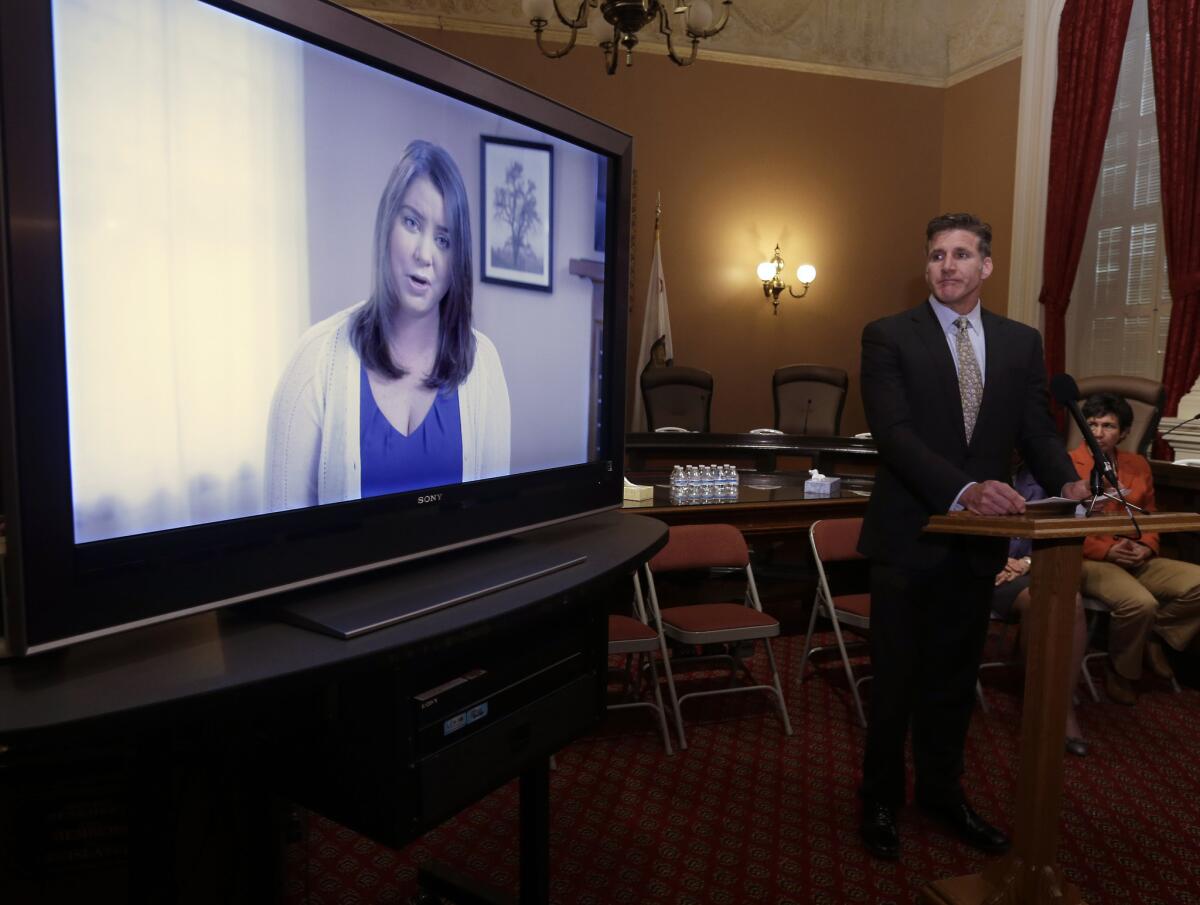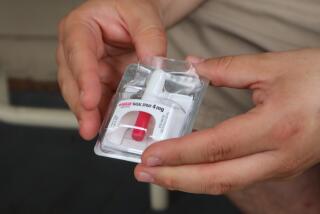Key Assembly panel approves Aid-in-Dying bill for California

Dan Diaz, the husband of Brittany Maynard, watches a video of his wife, recorded 19 days before her assisted suicide death.
- Share via
Reporting from Sacramento — A bill allowing physicians in California to prescribe lethal doses of drugs to hasten the death of the terminally ill passed a key milestone Tuesday when it was approved by its first committee in the state Assembly.
A similar bill had previously stalled during the regular session in the Assembly Health Committee, but the proposal was revived when Gov. Jerry Brown called a special session with a different committee membership that was supportive of the bill.
“I think our loved ones suffer when they don’t need to,” said Assemblyman Mark Stone (D-Scotts Valley), a member of the committee before the 10-3 vote.
Assemblyman Luis Alejo (D-Watsonville) said the bill he co-authored is necessary for terminally ill people to “allow them to end their suffering in a peaceful and dignified way.” Alejo said his own father, a pastor, is suffering from a terminal illness and is concerned about the pain. “It hurts seeing your own loved ones going through that,” Alejo said.
Assemblywoman Susan Talamantes Eggman (D-Stockton), a co-author of the bill, said a similar measure approved 17 years ago in Oregon has not had any problems. “There has never been a lawsuit. It has never been abused. It is not something that has been overly utilized,” Eggman said. She said 879 Oregonians have participated in the process of getting drugs but only a little more than half have ended their lives.
Eggman noted that four other states already allow physicians to prescribe lethal doses to the terminally ill, and a recent poll found 67% of Californians support a similar law for this state.
Former LAPD Det. Christy O’Donnell, a single mother with terminal lung cancer, said in tearful testimony in favor of the bill that she wants the ability to chose how she dies. “Now that I am at the end of my life, I don’t have that same decision here in California,” she said.
The panel also heard emotional testimony in support of the bill from Dan Diaz, whose wife, Brittany Maynard, moved from California to Oregon last year to end her life in the face of terminal brain cancer.
“”My wife passed away gently,” Diaz said. “There is no glory in suffering a prolonged and agonizing death if that’s not what an individual wants.”
The bill is opposed by the Catholic Church, associations representing oncologists and disabled rights activists including Marilyn Golden, senior policy analyst with the Disability Rights Education & Defense Fund.
“End-of-life treatment options are already limited for millions of people—constrained by poverty, disability discrimination and other obstacles,” Golden said. “Adding this so-called choice into our dysfunctional healthcare system will push people into cheaper lethal options.”
The panel also heard opposition testimony from Laura Petrillo, a hospice medicine physician at the UC San Francisco, who told the committee there are insufficient safeguards when assessing informed consent.
“This assessment can be very difficult in patients with dementia or cognitive impairment, and that murkiness leaves people with cognitive impairment open to risk of coercion from their families, care providers or even the medical system,” Petrillo told the committee.
The California Medical Assn. has objected to one proposed change that would allow civil lawsuits against physicians for willful misconduct, but that amendment is still being negotiated, Eggman told the panel.
Twitter: @McGreevy99
Hoy: Léa esta historia en español
More to Read
Sign up for Essential California
The most important California stories and recommendations in your inbox every morning.
You may occasionally receive promotional content from the Los Angeles Times.














